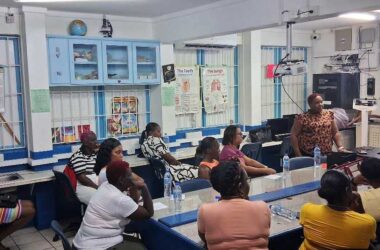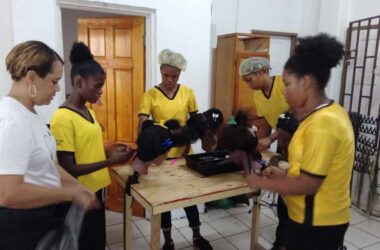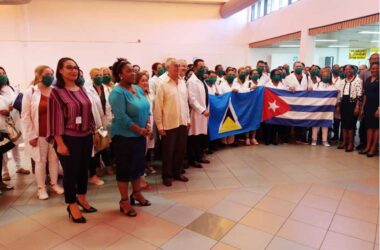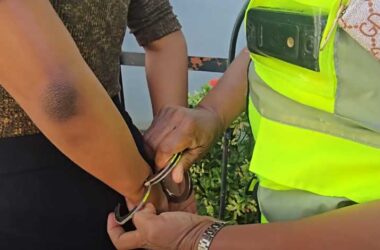On Friday 31st July, the Taiwan Technical Mission, together with the Ministry of Agriculture, hosted its Farmer’s Market alongside the Rodney Bay main road, just opposite the Harbor Club Hotel. With a total of seventeen farmers altogether, the event began at 9 am and lasted until 5 pm on that day. The Taiwan Technical Mission and the Ministry of Agriculture went to great lengths to ensure that we followed the national protocols about public social gatherings. They equipped all booths with hand sanitizer and alcohol to disinfect the hands of participants of each booth along with any visitors that may have patronized. Together with this, the Mission provided the booths with masks to ensure that the highest level of sanitation is maintained. All of the farmers market participants were encouraged to practice social distancing and maintain a level of separation when purchasing goods.
The extension officers of Region 1 and 2 prepared the venue by ensuring the landscaping was done and that that there was a clear area to set up the tents, tables, and chairs. An area was separated for the parking of vehicles and loading and off-loading of goods from transport vehicles. Farmers were also well-prepared, offering a variety of goods for sale. Some of these goods included eggs, seedlings, flowering plants, herbs & seasonings, immune system boosters, spices, nuts & vegan snacks, cupcakes, flour & dried goods, cocoa sticks, fruits & vegetables, wines & other drinks, popsicles, natural skin & hair products, fruit smoothies, and marinade sauces.
The farmer’s market was appreciated very much by the patrons as well as the farmers who attended. Everyone was very excited to host another farmers market very soon and include even more farmers and a wider variety of products. It is hoped that at the end of the project, the Agricultural Regions will continue to showcase the farmers’ products to give a very welcomed outlet for the sale of their local goods. The increase of farmer’s markets will create the ideal outlet for smaller producers to sell specialty items as well as other crops. This outlet will increase their disposable income while minimizing the number of imported goods sold at supermarkets.













